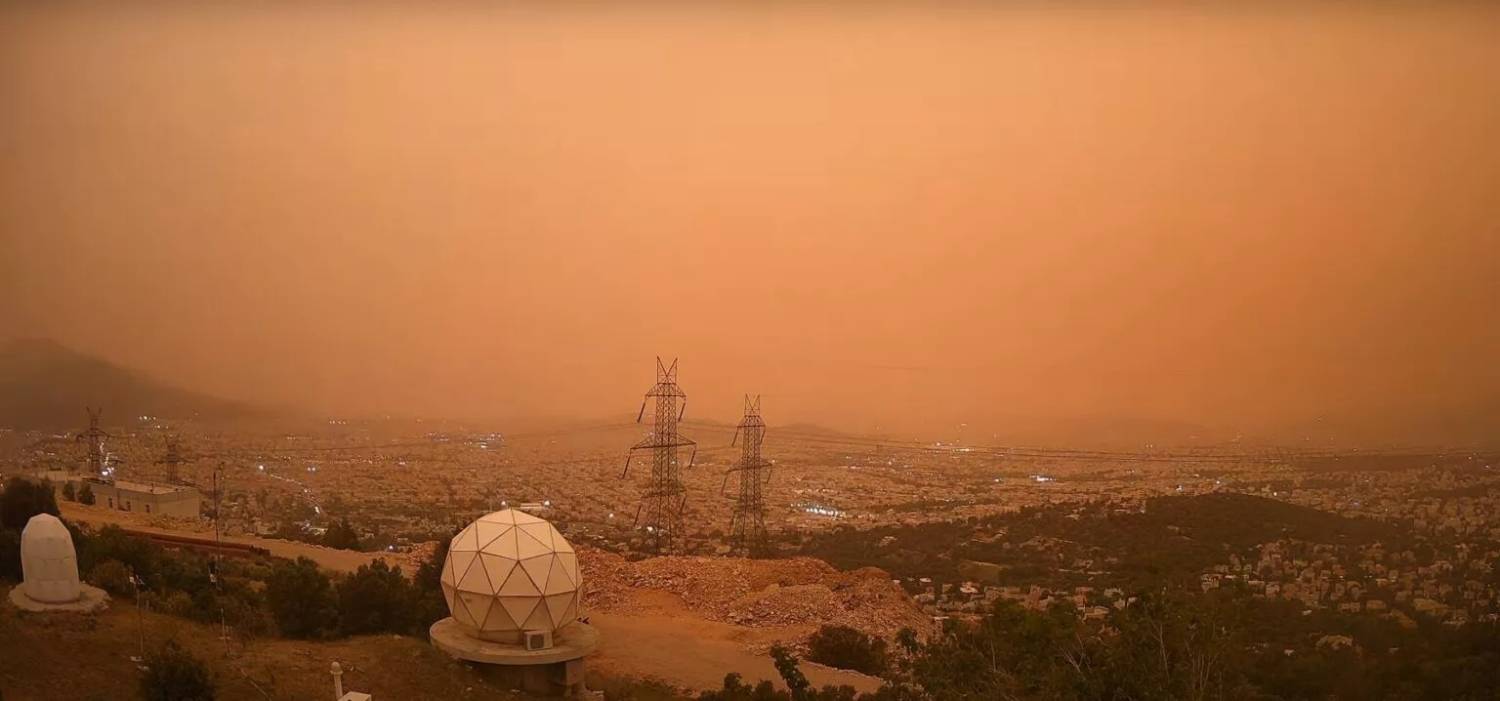The “Minerva Red” Phenomenon Over Athens
Residents of Athens were recently enveloped in an unusual orange haze as African dust, a natural occurrence dubbed “Minerva Red,” swept across the cityscape. A timelapse video released by meteo.gr/National Observatory of Athens vividly captured this spectacle, showing the swift transformation of Athens into an orange-tinted world on April 23rd and 24th.
The footage, taken from the observatory’s vantage point in Penteli, revealed how the Sahara’s dust can alter the atmosphere within hours, creating a stifling environment. Experts warn that such events might become more common and even more intense, with another episode potentially striking before mid-May.
Professor Dimosthenis Sarigiannis, a leading voice in Environmental Engineering at AUTh, has raised concerns about the increasing frequency of the Minerva Red phenomenon. He pointed out that these dust episodes are symptomatic of broader environmental issues such as drought and soil desertification, which lead to larger volumes of airborne particles. Sarigiannis also highlighted the role of shifting wind patterns due to climate change, which could exacerbate the transport of African dust to Europe.
While Sarigiannis anticipates an improvement post-May, with a respite until autumn, he underscored the compounded impact of such dust events on urban centers already grappling with particle pollution. Cities like Athens, Thessaloniki, and Volos face additional air quality challenges when these dust waves arrive.
The professor’s message is clear: there is a pressing need for adaptation and preparedness within the National Health System to manage acute health issues resulting from these dust episodes. Moreover, he advocates for proactive measures to reduce particle pollution in urban areas, thereby mitigating the effects when these waves of African dust inevitably return.
As the world watches these natural phenomena unfold through mediums like the striking timelapse video, it becomes increasingly evident that understanding and addressing the underlying causes of climate change is crucial for our collective well-being.






